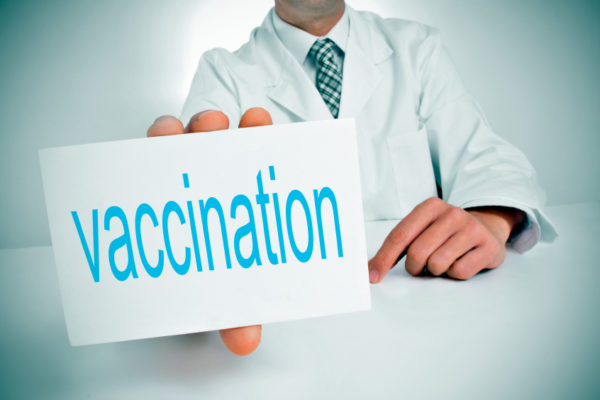Measles has returned to the United States with a vengeance, even though it was officially eliminated in 2000. By the end of April, there were 704 measles cases reported in 2019, the most in a single year since 1994, and it’s only a matter of time before it hits Austin. There have been 15 cases so far this year in Texas.
It is widely recognized that the resurgence of measles in the U.S. has been enabled by vaccine refusal. However, international air travel is equally important.
In prior years, occasional outbreaks have occurred because travelers have brought the virus back with them from measles-prone areas of the world. The risk of international travel, combined with the increasing prevalence of nonmedical exemptions for vaccines, is a recipe for a major public health crisis spread across the U.S., even in places where vaccination rates are high.
Brooklyn, this year, is an example. Neither Brooklyn nor neighboring Queens County in New York have high vaccine-refusal rates. However, Queens hosts two busy international airports — JFK and La Guardia. Brooklyn is also home to several ultra-orthodox Jewish communities in which some members have refused vaccines. There have been 423 cases of measles in Brooklyn and Queens, mostly in these Jewish communities.
In a risk analysis we conducted, three Texas counties rank among the nation’s top 25 counties most at risk for a measles outbreak: Harris, Tarrant and Travis counties, listed in the order of greatest risk.
Harris County is in the Houston metropolitan area, and Tarrant County includes part of Dallas-Fort Worth International Airport. Already, Harris, Tarrant and several counties adjoining them have reported measles cases in 2019. Though Travis County is yet to report a case, neighboring counties Bell and Guadalupe have had cases. We have a high risk of measles in Austin because we get a large number of international travelers and have dense pockets of unvaccinated people in the city.
Schools are our problem communities, and the ones our public health leaders should be keeping a close eye on. For measles, because of how highly contagious it is, we need a 95% vaccination rate to achieve herd immunity — a situation in which it cannot spread. As many as 16 of our schools do not reach that threshold and have vaccine refusal rates higher than 5%.
The worst is Austin Waldorf School, with a 49.01% vaccine refusal rate for the 2017-2018 academic year. Austin Discovery School with 32.18% is next. Austin Montessori School has a 21.96% vaccine refusal rate, and Veritas Academy’s is 21.30%. We have no data on home schooled children, many of whom are also likely to be unvaccinated.
How should we manage our risk of measles outbreaks? The first and obvious response should be to vaccinate as effectively as possible. We must try to persuade those who refuse vaccines to reconsider, at least for their children’s sake and the sake of others who are put at risk because of their vaccine refusal — most notably children and infants who are the most likely to become seriously ill.
The Centers for Disease Control and Prevention recommends two doses of the MMR vaccine, the first between 12 and 15 months of age and the second between four and six years. However, for international travel, the CDC recommends a first dose of MMR at or after six months.
Given the risk of an outbreak, this is an option parents in Austin should seriously consider and discuss with their pediatricians. New York City is already requiring early vaccination for infants in response to the crisis. Austin should follow suit.
The second response should be to minimize contact between unvaccinated individuals and those at risk of infection through no fault of their own. New York provides a precedent by temporarily banning unvaccinated individuals from public places in outbreak areas. Should measles cases begin to appear in Austin, such drastic temporary measures should be on the table. In such a circumstance, we should at least limit attendance in high-risk schools to vaccinated children and adults, as well as limit access to libraries, parks and social events such as concerts.
Sahotra Sarkar is a professor of philosophy and integrative biology at The University of Texas at Austin and an expert on public health.
A version of this op-ed appeared in the Austin American Statesman.




